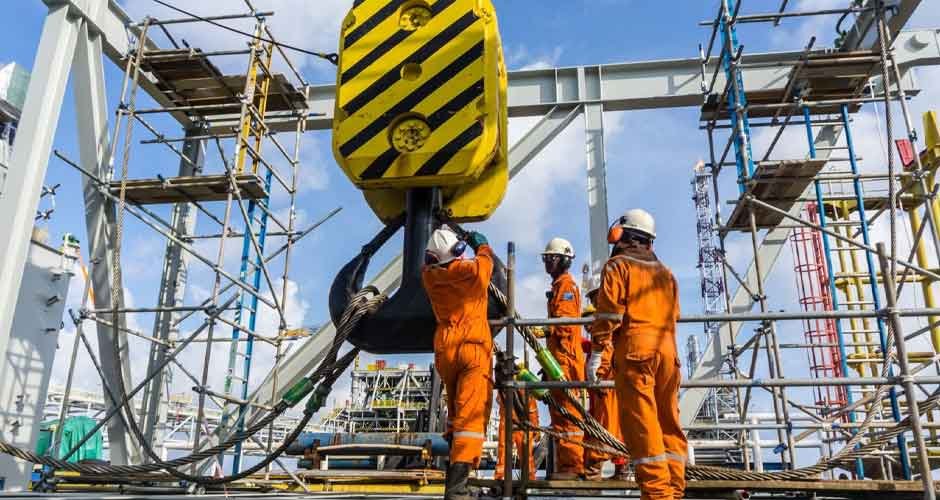Construction sites pose inherent risks and hazards, making safety training an essential aspect of the industry. Choosing the right safety course for construction workers is elemental for ensuring their well-being and compliance with safety regulations. This guide will discuss key factors when selecting the best safety construction course.
- Identify Relevant Safety Regulations and Requirements:Before choosing a safety course, familiarize yourself with your region or country’s relevant safety regulations and requirements. Different jurisdictions may have specific guidelines and standards for construction safety training. Understanding these regulations will aid you in identifying the necessary topics and certifications required for compliance.
- Accreditation and certification:Look for safety courses accredited by recognized organizations or institutions. Accreditation assures the course meets specific quality standards and has been evaluated by industry experts. Certification ensures certifications.
- Course Content and Curriculum:Review the course content and curriculum to ensure it covers the elemental safety topics relevant to construction. The course should address common construction hards such as falls, electrical safety, scaffolding, confined spaces, and personal protective equipment(PPE). A comprehensive and up-to-date curriculum will give you the knowledge and skills to navigate construction sites.
- Instructor Qualifications and Experience:The qualifications and experience of the safety course instructors are vital. Ensure that the instructors have expertise in construction safety and relevant industry expertise. Experienced instructions can provide real-world examples and practical insights. Consider researching instructor credentials and reading testimonials to gauge competence.
- Training Duration and Schedule:Evaluate the training duration and schedule of the safety course. Determine if the course can be completed within your available time frame. Some courses may require a few hours of training, while others may span several days. Consider whether the course schedule matches your work or personal commitments.
- Cost and Value:While cost should not be the sole determining factor, it is essential to consider the course does the value offered, compare prices of different safety courses, and evaluate what is included in the cost, such as materials, certifications, or additional resources. Assess the overall value the course assures in terms of knowledge gained and its impact on your career advancement and safety on the job.
- Support and Resources:Check if the course offers additional resources such 11as reference materials, post-course support, or access to safety professionals for guidance and questions. Ongoing support can reinforce safety principles and ensure proper implementation on the job site.
- Course Provider’s Reputation:Thoroughly research the reputation of the training provider. Look into their track record, experience, and customer feedback. A reputable and established training provider is more likely to deliver a high-quality safety course. Consider the Safeline Group of Companies construction safety course.
Choosing the best safety course for construction is a critical step in safeguarding the well-being of workers and maintaining a safe working environment. By considering factors such as course content, accreditation, instructor qualifications, training delivery methods, and reviews, employers can make an informed decision. A well-structured and comprehensive safety course equips workers with the knowledge and skills they need to identify and mitigate potential hazards, promoting a culture of safety in the construction industry.
What are the construction services, offered by companies?
Construction companies offer a wide range of services to meet the diverse needs of clients in the construction industry. These services comprehend various stages of a construction project, from initial planning to project completion. Here are some common construction services assured by construction companies:
- Design Planning:Construction companies often offer design and planning services, working closely with architects, engineers, and clients to develop project plans. This involves creating architectural drawings, engineering designs, and construction blueprints. The goal is to ensure that the project meets the client’s requirements while adhering to safety regulations and building codes.
- Pre-Construction Services:During the pre-construction phase, construction companies provide essential services to set the foundation for a successful project. This comprehends conducting feasibility studies, estimating project costs, and developing project schedules. They may also assist in obtaining necessary permits and approvals from relevant authorities.
- Post-Construction Services:Once the construction phase is complete, construction companies may provide post-construction services. This comprehends tasks such as final inspections addressing any issues or punch-list items, and handing over the completed project to the client, They may also offer maintenance services to ensure the ongoing upkeep of the structure.
Safety services offered by construction companies?
Safety is a top priority in the construction industry, and construction companies assure various safety services to ensure the well-being of workers and compliance with safety regulations. These services aim to create a safe work surrounding lessen accidents and promote a culture of safety. Here are some common safety services offered by construction companies:
- Safety planning and Consulting
- Safety Training Programs
- Job Hazard Analysis
- Safety Inspections and Audits
- Incident Investigation and Reporting
- Safety Equipment and Gear
- Safety Program Development and Management
Safety services offered by construction companies play an elemental role in guaranteeing the well-being of workers and maintaining a safe work environment. From safety planning and training programs to inspections, incident investigations, and safety equipment provision, these services promote a safety culture and compliance with industry regulations. By engaging construction companies that prioritize safety, clients can boost workplace safety and lessen the risks associated with construction activities.






